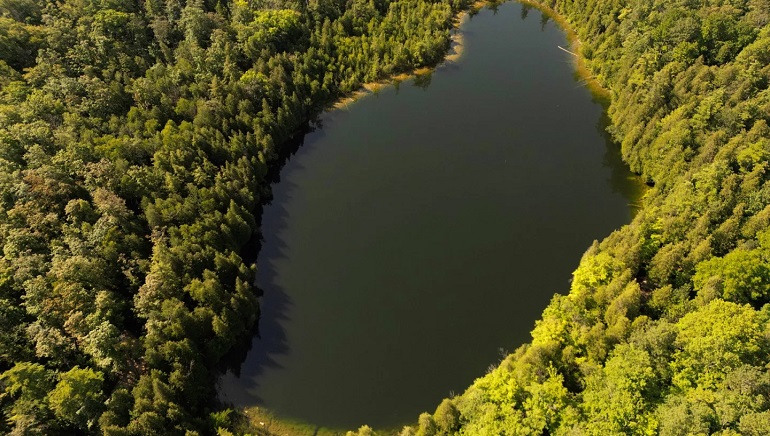Members of the Anthropocene Working Group (AWG) have presented evidence from a lake in Ontario, Canada that they believe can help pinpoint a start date for the new human-driven epoch.
According to the chair of the AWG, Colin Waters, a geologist with University of Leicester, human activity is “no longer just influencing Earth’s sphere, it’s actually controlling” it. The announcement on July 11 centred on discoveries made in Lake Crawford, located about 60 km west of Toronto.
Sediment settled at the bottom of lakes can provide scientists with a geological record of changing environmental conditions. The team of scientists collected core samples from 11 other sites, but Lake Crawford’s exceptional depth allowed sediment to float downward fairly intact, creating layers that can capture distinct environmental markers, helping the team document a “golden spike” among its layers of sediment. Part of this “spike” was documented by the presence of plutonium, which rarely occurs naturally, leading scientists to conclude it came from nuclear testing in the 1950s.
Colin Waters added it was a “clear marker” for the shift to the Anthropocene, the age of humans. He and the other members of the AWG have proposed naming the start of the new epoch between 1950 and 1954. If accepted, the Anthropocene — derived from “anthropo-“, meaning “human” — would mark the conclusion of the Holocene, the epoch that spanned the last 11,700 years.















